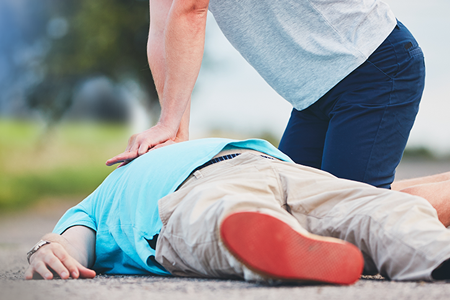
Recognizing the signs of a Heart Attack: A Guide for Loved Ones
Recognizing the Signs and Symptoms
27 JULY 2023
Heart attacks, or myocardial infarction is one of the leading causes behind mortality in India. It occurs due to blockage in the blood flow to the heart muscle, leading to damage or death of heart tissue. Loved ones need to recognize the signs of a heart attack, as early detection and treatment can greatly improve the chances of survival and reduce the risk of complications. Here, we will discuss the signs of a heart attack and provide a guide for loved ones to recognize them.
Signs of Heart Attack
The signs of a heart attack can vary from Person to Person, but some common indications of heart attack are important to recognize.
Here are some of the most common signs of a heart attack:
Guide for Loved Ones
1. Call for EMS:
The first thing you should do is call for emergency medical services. In India, the number to call (EMS) Emergency Medical Services is 112. The sooner medical help arrives, the better the chances of survival and recovery.
2. Keep the person Calm:
While waiting for medical help to arrive, try to keep the person calm. Reassure them that help is on the way and that you are there to help them.
3. Help the Person Sit Down:
If the Person is standing, help them sit down to prevent them from falling and injuring themselves.
4. Monitor the Vital Signs:
If you have a blood pressure monitor or a pulse oximeter, use it to monitor the vital signs. This information can be helpful for medical professionals when they arrive.
5. Loosen Tight Clothing:
If the Person is wearing tight clothing, loosen it to help them breathe more easily.
6. Provide Aspirin:
If the Patient is not allergic to aspirin, give them a tablet to chew on. Aspirin can help reduce the risk of blood clots, which can worsen a heart attack.
Conclusion
Recognizing the signs of a heart attack is crucial for early detection and treatment. As a loved one, it is important to know the common indications of a heart attack and what steps to take if you suspect someone has a heart attack. Remember to stay calm, call for emergency medical services, and provide comfort and reassurance to the person. With early intervention, the chances of survival and recovery are greatly increased.
Disclaimer: The information presented by Boston Scientific India is for educational purposes only and does not recommend self-management of health issues. The information should not be treated as comprehensive and does not intend to provide diagnosis, treatment or any medical advice. Individual results may vary and hence, it is advisable to consult your doctor regarding any medical or health related diagnosis or treatment options.
IC-1601801AA-0523
Related Articles
Tags
Heart Attack | Sign of Heart Attack | Symptoms of heart attack | Side effects of heart attack




